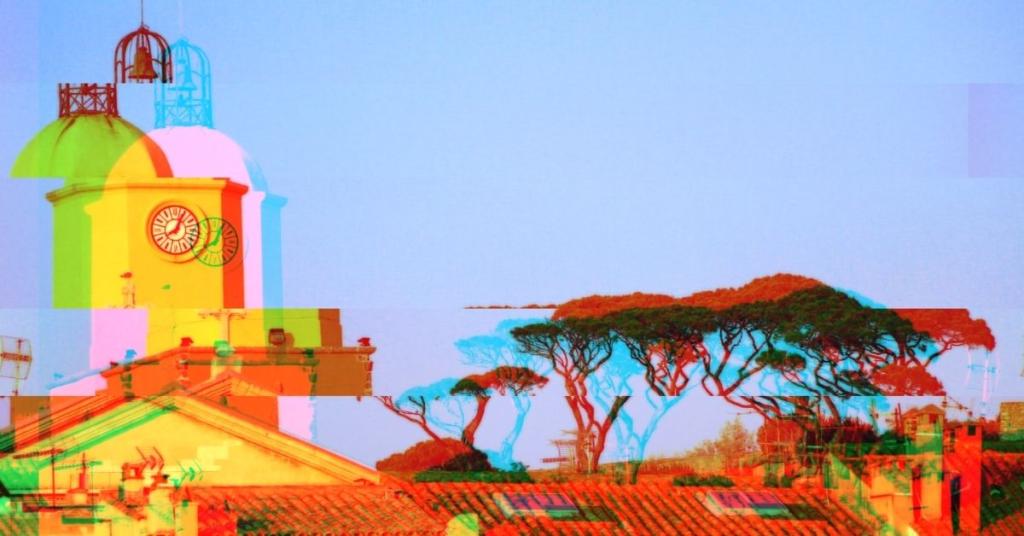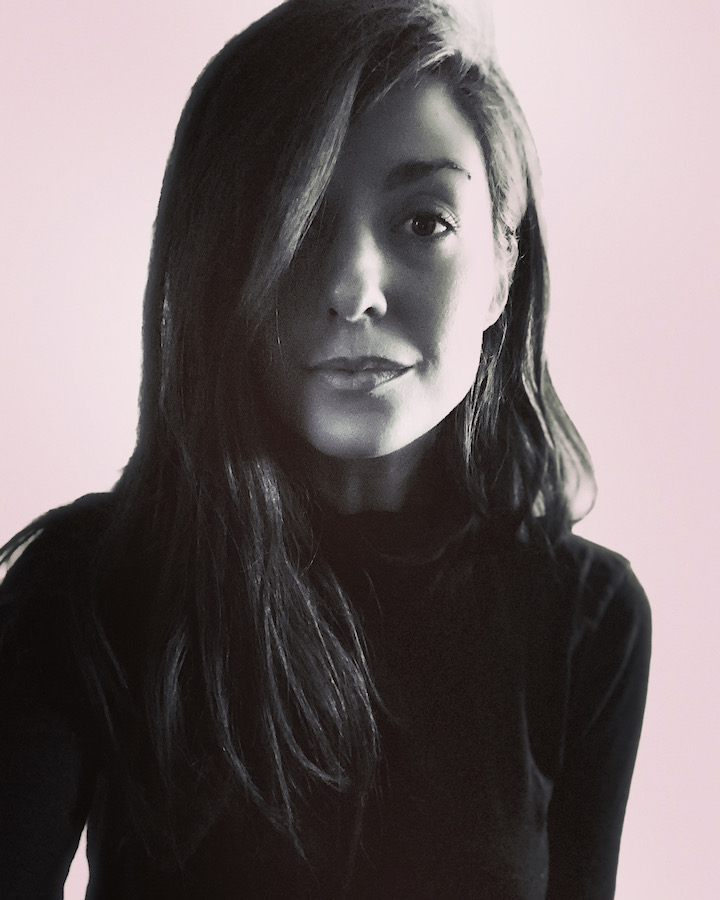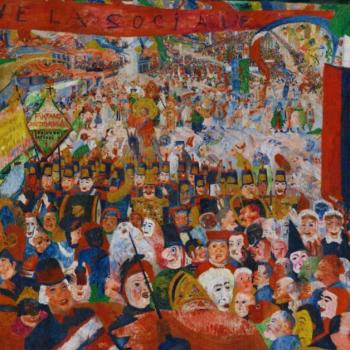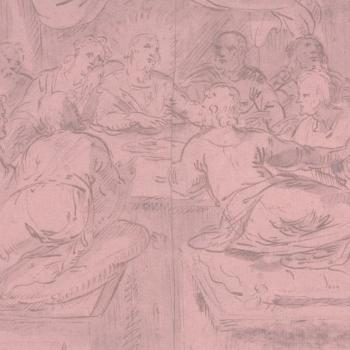
Deconstruction is undoubtedly the word of the hour. I have a lot of thoughts on this and wonder about, if any, its connection to philosophical deconstruction via Jacques Derrida and furthered by Jack Caputo. I wrote about it last month in my article, The Non-Click Bait Article on Deconstruction. So, when I use the term “deconstruction”, I use it with all the nuance in the world. But for all intents and purposes, allow me to use it as it is currently employed; the dismantling of a particular set of Christian ideologies in hopes of freedom from constraints on faith, as I move on to the matter at hand, deconstructing in a beautiful place.
Recently I spent four days in Nice reuniting with old friends and visiting old haunts. It was glorious. The South of France is my favorite place in the world. For a year and a half, over 2016-to 2017, I was lucky enough to live there. I resided in a perched village in the Alpes-Maritime, Saint-Jeannet. It is famous for its hiking treasure, Baou de Saint-Jeannet, and you can even enjoy a punch de baou at the Avocado Hôtel Restaurant that sits in its shadow. Just make sure you are ready for it!
I lived in a 500-year-old stone farmhouse with a dreamy garden that boasted of salad and vegetables and a gorgeous fig tree known by all at the heart of the garden. There, of course, was flowing lavender and a saltwater pool for swimming, after which you could shower under an olive tree that the owners had cleverly installed running water upon. It was all a little French dream. On the weekends, we hosted big garden parties. They started as an invitation to lunch, in which food, pink champagne and rosé were flowing. It quickly moved into lively dinners and then an even more spirited evening that surged into the early morning hours, all calling for recovery by the pool the next day. These were the spring and summer months and they were a gift.
But in the winters, which are Mediterranean winters, so they aren’t so bad, I would sit inside, at my desk in my room and read and study. I was finishing one of my two master’s degrees at the time and was doing an independent study on post-theism and Radical Theology. I couldn’t get enough. For the two years leading up to France, I had started to be haunted by concepts I could not yet name. Things were changing, but I didn’t know how. I knew what I used to believe could no longer hold, but I felt as if I were in a vacuous abyss that was pulling me further into an ether of stagnancy. I simply didn’t know what the future held.
These long standing beliefs of mine had been slowly disintegrating. And it was longer than just the past two years. It has been for several. And I had given ample time for the uptick to occur, but it simply never did. The prayers, the waiting, the “ok, I’m just in a wilderness period, and it will end at some point” all fell flat in the face of this new reality I was living. After silently suffering for years with the melting and evaporating of a particular way of faith and identity I had claimed for as long as I can remember, I started to come across new ways of speaking about what I had been feeling and experiencing but simply could not articulate.
A few years leading up to France, I experienced significant changes in my life. I got a divorce, lost some of my closest friends for reasons I still don’t understand, got hired for my dream job (albeit short lived), started regular solo travel to Europe, got my studio apartment, and turned it into my sanctuary and haven of beauty. I was experiencing a new level of peace in my life. I had the freedom that comes with being alone. Truly. Left alone by my God, left alone by my marriage, left alone by all the mitigating voices trying to ‘speak into my life.’ And I was ready. I was prepared to see what was next.
When I arrived in France, I came with many books in hand by scholars that were brand new to me, although now they are my most read and recommended books, resources, thinkers and theologians. One of which was Mark C. Taylor’s book, After God, arguably the most important book on religion written in the last 15 years. I remember reading the opening words of this seminal text, “I no longer believe in circles as I once did.” And it hit me…neither did I. This short sentiment suddenly encompassed all I felt and was intuiting for years. It is as simple as I don’t believe in the circles I once did.
In a circle, one goes around and around. Always getting the same result, constantly experiencing the same thing. There is never any change, only the illusion of movement. This is not how life works. Religion, Christianity, God, it has all become a set of circles to me. I knew the starting point, and, of course, there is a promised endpoint if one sticks to the allotted path, which is also fully known. Follow the circle. Follow the map. Follow the grid. However, we must redraw the map, and grids are no way to engage in this postmodern life in which we find ourselves. Circles simply won’t do for the multi-dimensional reality our humanity is ever becoming and forming in.
It was one of those moments when everything stopped. Or rather, it stopped me. Not the most suitable time to stop as I had just finished the very first sentence in a long and rigorous text, but stop I did.
Here I was, in France, in this little village in a storied farmhouse. I was wearing jeans and a light sweater, with a cup of steaming hot tea, accompanied by an array of highlighters, pens and post its, my hair back with no make-up. And there, at that moment, I was deconstructing in a beautiful place. And not just because I was in the South of France surrounded by literal beauty. But because I was finally at a beautiful place in my life. I moved on enough from Evangelicalism, and more than that, traditional notions of Christianity, the big God in the sky and the savior that lives in our hearts. Yet I was still close enough to the unknown desire of the toute autre (wholly other) to search in peace—no timeline, no longing. But reckoning with all that I had lost, but/and gladly. All that I had moved on and past, but willfully and amid the beauty and pain of life, which comes to us with uncertainty and no ability to be controlled.
I moved through the pain of the ‘what do I do now’ moment, and I was giving myself up to all that may or may not be. And this encompasses all of life, as any meaningful theological framework and expectation should. This was a healing moment for me. The moment sent encouragement, letting me know I was not alone and that I was indeed on some kind of a path. The path didn’t need to have a destination; it most likely doesn’t. But I was for sure on a road less travelled, and this has marked and continues to mark my life.
As I sat there that day and continued to read Taylor’s opening remarks, he went on to say a few more words that were like balm to my soul,
“To many friends and critics it has seemed that I stopped studying religion a long time ago. But this is not true—indeed, I have never left the study of religion behind but have always attempted to expand its scope and significance.”
In the years leading up to France and certainly in the years since, as my work as a post-Christian thinker and writer has emerged, I have indeed been misunderstood by many who still find themselves within the paradigms I am no longer apart. To such, it seems as if I have left all ‘proper’ understanding of God, religion, Christianity, church and faith behind. But quite the opposite has happened. It has never mattered more to me. I have never been as concerned, passionate or connected to all I think (and don’t think), feel, ponder, imagine, and suspect when it comes to god and all that might be possible.
While I am not alone, it can certainly be a lonely place, which is why it is perhaps valuable to deconstruct in a beautiful place. I was in France, but I could have been in a back alley somewhere. The difference was that I was in a beautiful place within myself. A place that had been prepared by the loneliness, confusion, betrayal of people and of gods, insecurity and all sorts of ache that comes with loss and many unanswered questions. The beauty comes when you realize that the unanswered questions are actually the stuff life is made out of. And you honor and even cheat the pain when you accept it, invite it in, allow it to do its work and continue into the darkness, knowing that it will be better than the supposed light you have left behind. For me, this is a beautiful place.
Wherever you are today, both geographically and emotionally, I hope you can find something beautiful to delight in, not least of which is your journey that, although may be broken and unexpected, will be your most valuable asset and ally as you continue to deconstruct. As you move on from circles and lay yourself bare to experience the event that continues to change and transform, allowing ourselves the discomfort of the disruption that leaves us forever altered.













